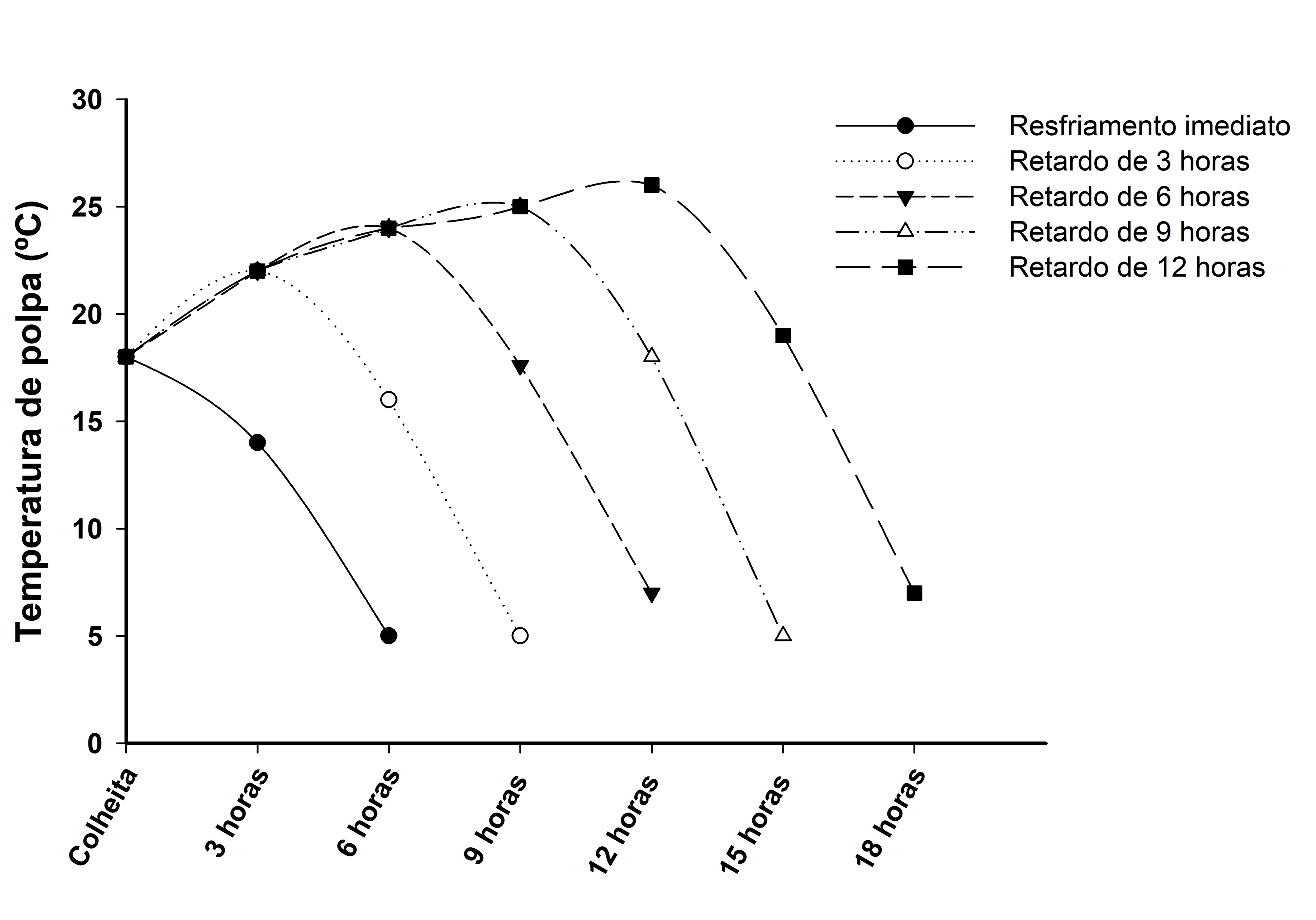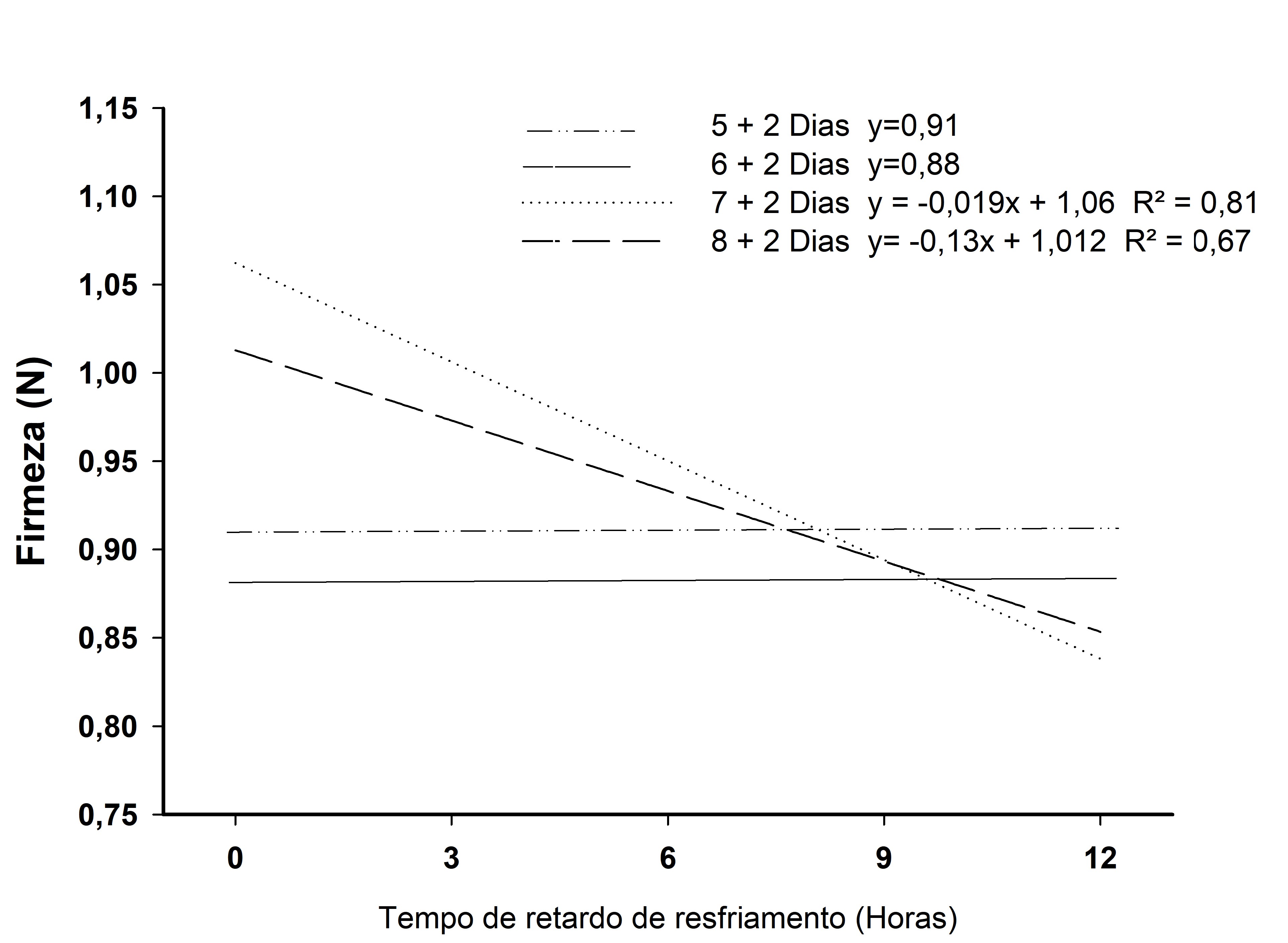Abstract
This work aimed to evaluate the effect of the cooling delay of 'San Andreas' strawberries on the maintenance of fruit quality, as well as on Total Phenolic Compounds (TPC) and Total Antioxidant Activity (TAA) after refrigerated storage. Treatments consisted of no cooling at times 0 (control, immediate cooling), 3, 6, 9 and 12 hours (at room temperature) after harvest. After application of the treatments, the fruits were stored under refrigeration (4 ± 0.5 ºC and 92 ± 2% RH) for 5, 6, 7 and 8 days, followed by a further 2 days of exposure in ambient conditions (20 ± 2 °C and 65 ± 5% RH). Strawberries with the greatest cooling delay added significant loss of fresh mass, in addition to less firmness after 7 days of storage. In general, the lowest values of rot incidence and severity were observed in the fruits of the treatment with immediate cooling after harvest, when stored for 7 and 8 days, followed by 2 more days in ambient conditions. Delaying cooling for up to 6 hours did not cause increased decay for up to 5 days of refrigerated storage, plus 2 days at ambient conditions. The values of TPC and TAA showed a dissipation with a delay of up to 6 hours of cooling of the fruits, at 6 days of storage followed by another 2 days in ambient conditions, and the TAA increased with the increase of the delay in the cooling of the fruits in up to 12 hours, after 8 days of storage plus 2 days at ambient conditions. The delay in cooling could cause losses in strawberry fruit quality, according to storage time.
Keywords:
Conservation; Cold chain; Decay; Fragaria ananassa; Polyphenols; Postharvest

 Thumbnail
Thumbnail
 Thumbnail
Thumbnail
 Thumbnail
Thumbnail
 Thumbnail
Thumbnail



